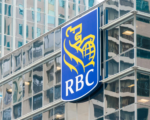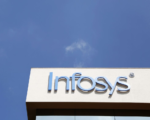Russia has the potential to bolster its position in global AI rankings by 2030, leveraging its talented developers and in-house generative AI models, according to Alexander Vedyakhin, the first deputy CEO of Sberbank. Despite Western sanctions targeting its technological infrastructure, Vedyakhin expressed confidence in Russia’s ability to achieve significant advancements in the field.
Speaking to Reuters, Vedyakhin emphasized the resilience of Russia’s AI sector, noting that while some developers left during the 2022 Ukraine conflict mobilization, many are now returning, drawn by emerging opportunities. “It is vital to continue fostering experimentation in AI,” he said.
Russia, currently ranked 31st in the Global AI Index by Tortoise Media, lags behind AI leaders like the United States and China. However, Vedyakhin argued that the six-to-nine-month gap could close quickly through supportive regulation and domestic innovation. “Sanctions were designed to limit our computing power, but we are compensating with the brilliance of our scientists and engineers,” he added.
At Sberbank’s annual AI Journey conference, President Vladimir Putin reiterated Russia’s intent to collaborate with BRICS nations and other partners to challenge U.S. dominance in AI technology. While Vedyakhin acknowledged that Russia would not rival the U.S. and China in building massive data centers, he outlined a strategy focused on developing smart, localized AI models akin to Meta’s Llama.
Generative AI models, like large language models (LLMs), analyze extensive datasets to produce human-like responses and content. Vedyakhin highlighted the importance of national AI models for maintaining technological sovereignty. He noted that foreign-trained models often misunderstand local cultural contexts, citing the example of a Western AI misinterpreting the Russian dish “herring under a fur coat” as a literal fish wearing a fur coat.
Vedyakhin also criticized overregulation in Europe and parts of China, which he said hampers innovation. He stressed the need for Russia to maintain an AI-friendly regulatory environment. “If we stifle experimentation with excessive restrictions, we risk falling behind in the global AI race,” he said.
Despite a broader decline in venture capital investment in Russia, funding for AI startups continues to grow. Vedyakhin predicted the rise of decentralized autonomous organizations (DAOs) powered by blockchain and AI agents, which could help address Russia’s labor shortages. He envisioned DAOs where AI handles most operations, with a single human at the helm, projecting widespread adoption within 3-5 years.
Russia’s focus on developing generative AI models tailored to its language and culture could help it carve out a niche in the global AI landscape, even as geopolitical and economic challenges persist.


















